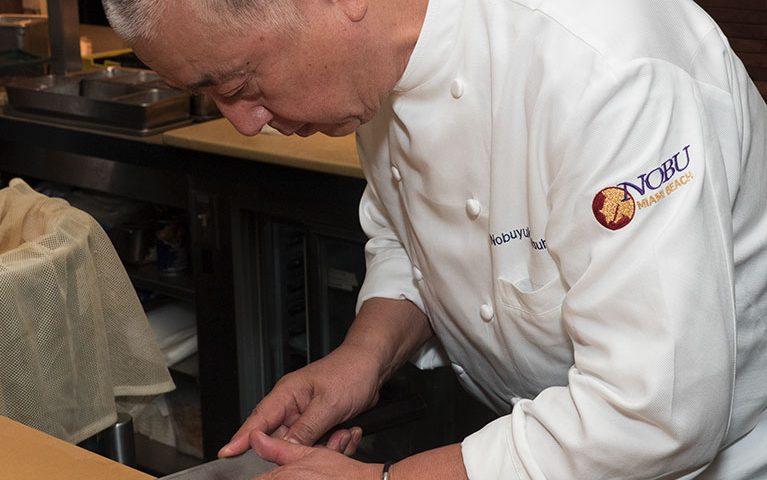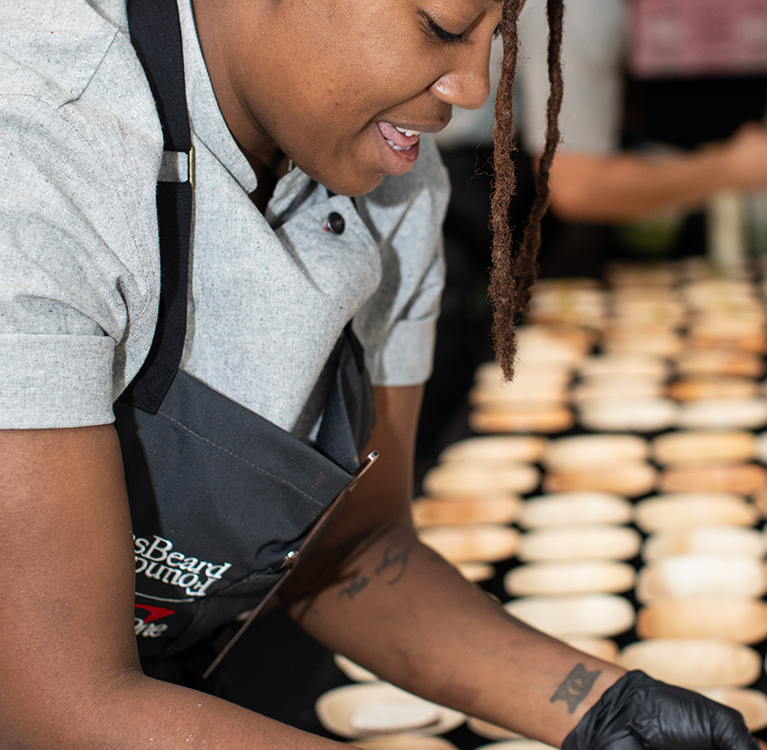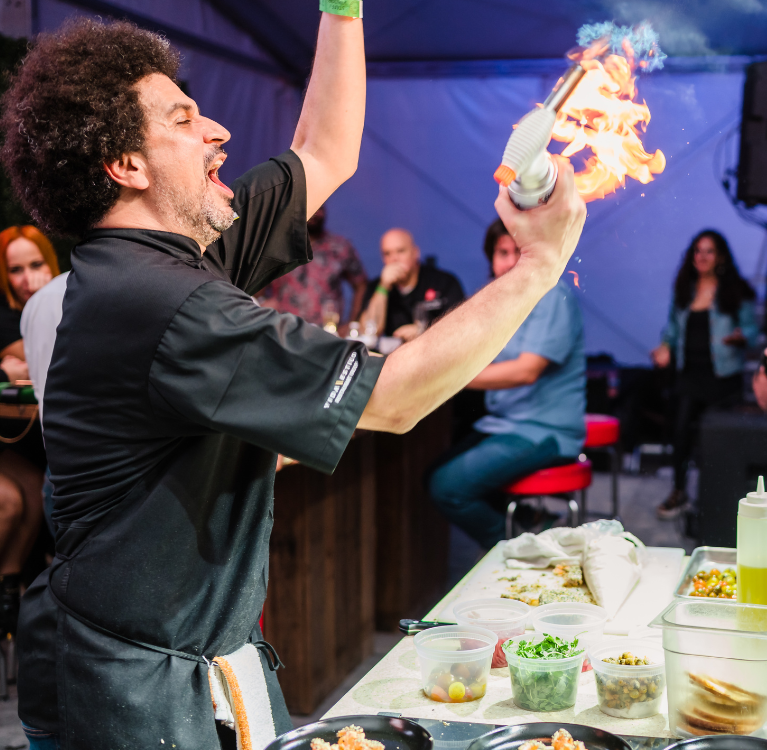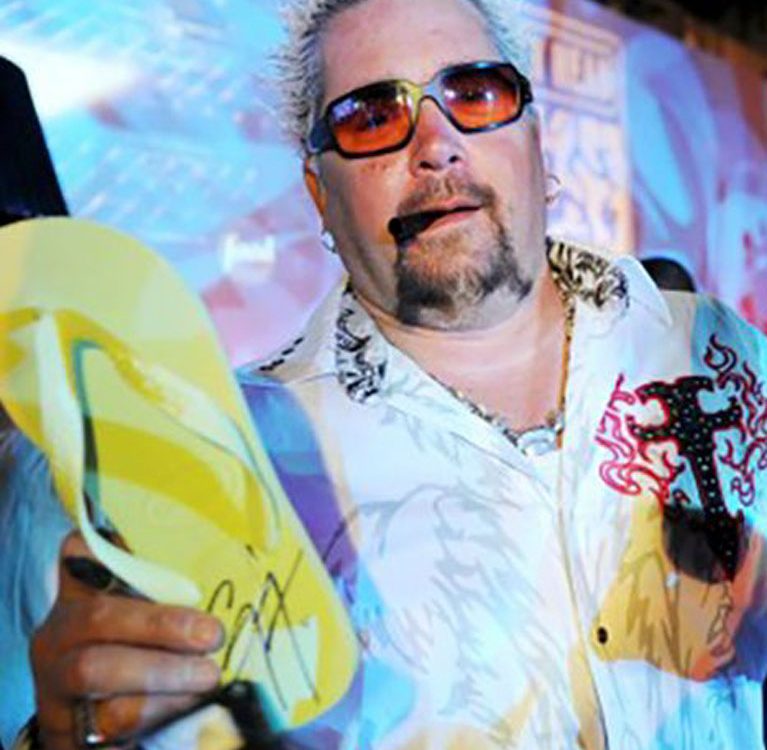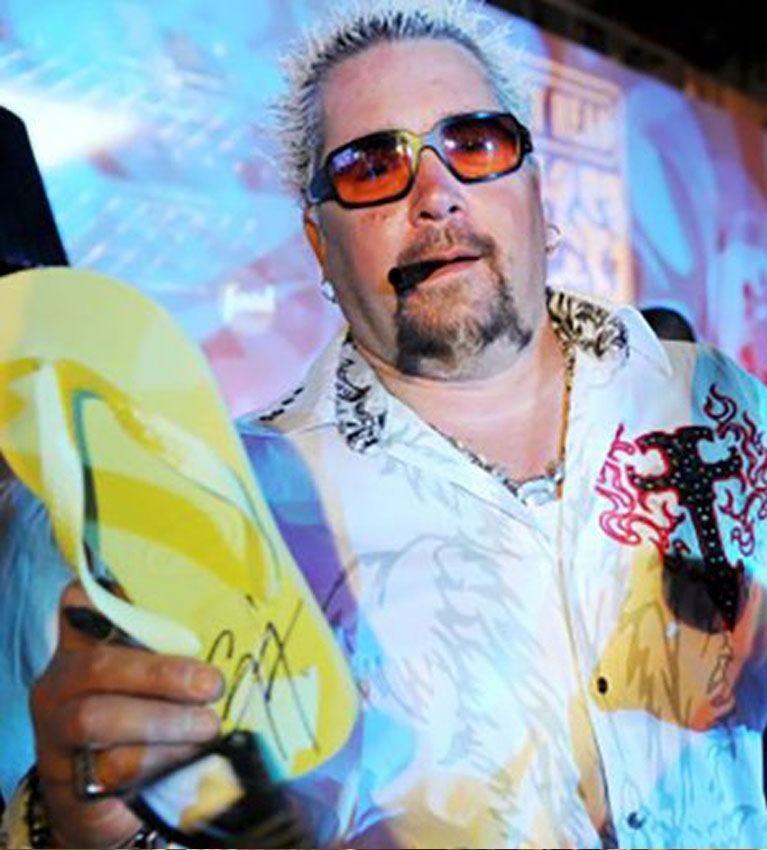
Getting to Know Guy Fieri
February 20, 2017
South Beach Seafood Festival: VIP Chef Showdown
September 8, 2023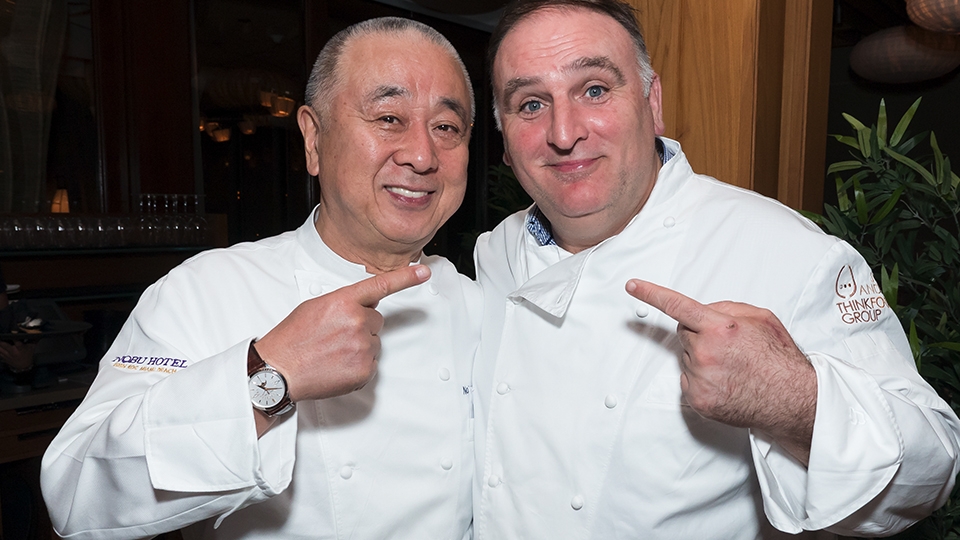
For many of us, Nobuyuki Matsuhisa (or “Nobu,” as the world knows him) is a household name; whether it’s because we’ve eaten at one of his award-winning restaurants, have stayed in one of his namesake hotels, or have just heard Drake and Future rap about him. Since opening his first U.S. restaurant, Matsuhisa in Beverly Hills, CA in 1987, Chef Nobu now has 32 restaurants in 28 cities on five continents, a handful of which have been awarded one Michelin star. Because of the chef’s popularity, Academy Award-winner Robert De Niro famously begged Chef Nobu to open his first Nobu restaurant in NYC back in 1994, and today, they’ve become so popular worldwide that a few – most recently, his Miami restaurant – have even been turned into an entire Nobu Hotel.
Lucky for us, Chef Nobu stopped by his Nobu Eden Roc Hotel in Miami during the 16th annual Food Network & Cooking Channel South Beach Wine & Food Festival (SOBEWFF®). In between an elegant lunch and a dinner with Chef José Andrés, both of which he hosted onsite at Nobu Miami, we caught up with the legendary chef to find out about his Nobu properties, his life in the kitchen, and with all his infinite wisdom, the life lessons he’s learned along the way.
Here's what the famous chef had to say:
When did you know you wanted to be a chef? What was that moment like?
“I was a kid. My father passed away when I was 7 or 8 years old, and after 4 or 5 years, my brother took me to sushi lessons. He was five years older than me. We would sit at the counter and watch while sushi chefs make each piece of sushi. I would watch them and think, ‘WOW! I want to do that.’ So a sushi chef is what I’ve wanted to be since I was a kid. That’s been my dream since I was 11 or 12 years old.”
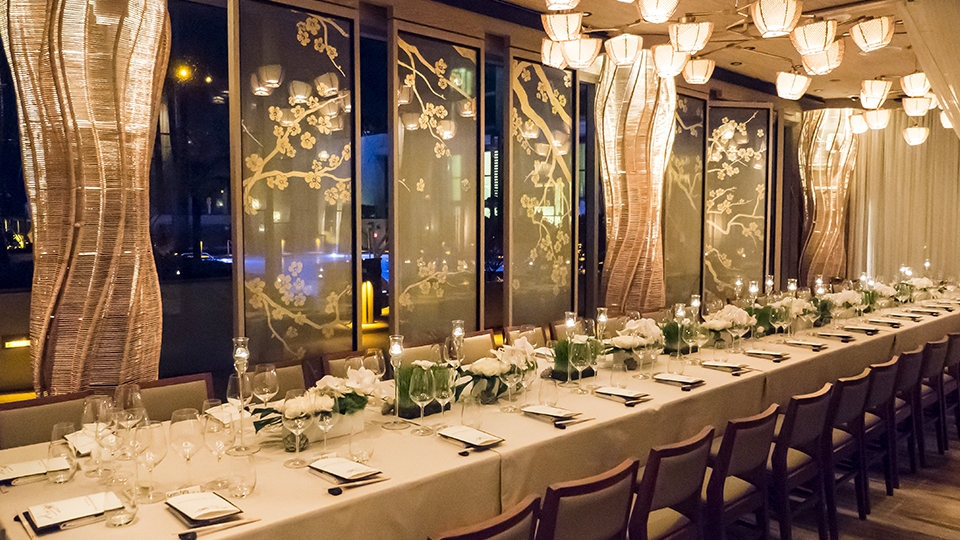
You have restaurants all over the world. Why was Miami a restaurant destination for you?
“We originally opened Nobu Miami in the Shore Club South Beach in 2001. Before that, we had a restaurant in New York, which is cold, so everyone in New York was always coming to Miami. It was a natural result that we put a restaurant here. Also, Miami has changed a lot in the last five years, so while we loved the other restaurant, I think now is a much better time to have a Nobu Miami. Personally, for me, Miami is very comfortable. I used to live in South America, and you see a little bit of the culture of South America here, too. People are easy and nice to talk to; they always say ‘hola,’ ‘como estas?’ or ‘hasta mañana.’ It feels so comfortable here.”
What made you want to go from Nobu, the restaurant, to Nobu, the hotel?
“Actually, my partner opened up the first restaurant in Greenwich Village in New York. After he opened that one, a lot of Nobu restaurants ended up in hotels; like in London, Australia, Las Vegas, Hong Kong, Cape Town and the Bahamas, they’re all in hotels. But then, when you open them in hotels, sometimes you then have to deal with a lot of limitations. So someone said to us, ‘Hey, why don’t you open a hotel?’ So we got into those negotiations. We opened the first Nobu Hotel and Restaurant in Las Vegas, then The Philippines, and then here in Miami, too. We weren’t in the Shore Club anymore at the time, so Miami was the perfect location for a Nobu Hotel.”
What's the one kitchen tool you can't live without?
“Only one? My knives. In Japan, we use all different knives. I have my vegetable knife, my sashimi knife, and my big knife that I use to cut fish heads and bones. I need all my knives.”
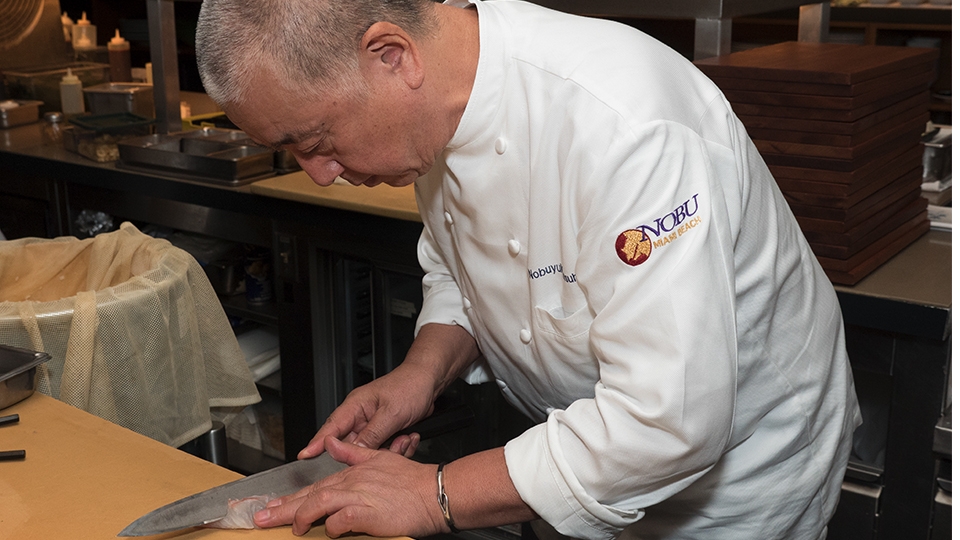
What ingredient do you use the most?
“Salt. Wait, no – soy sauce. Definitely soy sauce. I had to change my answer.”
If you didn't cook, what would you do?
“I think I’d be a painter. When I’m doing nothing at home or staying in a hotel, I sit down at the table and draw. I like pastel colors, too.”
Is there one type of food you haven't mastered, but want to?
“Food is discovered from cultures, and sometimes, religion, too. I respect all the different cultural foods. There’s history that goes into it, and meaning behind it. It’s very hard to choose one. All over the world, I just respect food.”
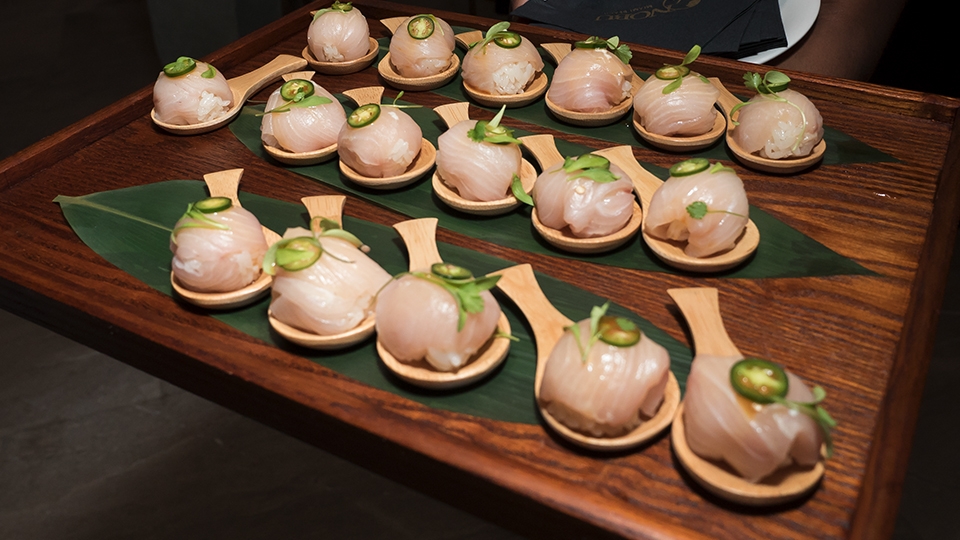
There are so many young chefs in the world opening up new, delicious restaurants. What advice would you give them now that you wish you had at their age?
“Any kind of business, including being a chef, is not easy. For people that choose a job, like I chose being a chef, don’t give up, always try your best, and do everything with passion. But also, never forget about appreciation. You have to try your best, you have to have passion, and you have to not give up. And don’t fret about your mistakes, especially young people. Nobody is perfect, except, you know, Jesus Christ and me. (I’m kidding.) People aren’t their mistakes, so they shouldn’t fret about them.”

